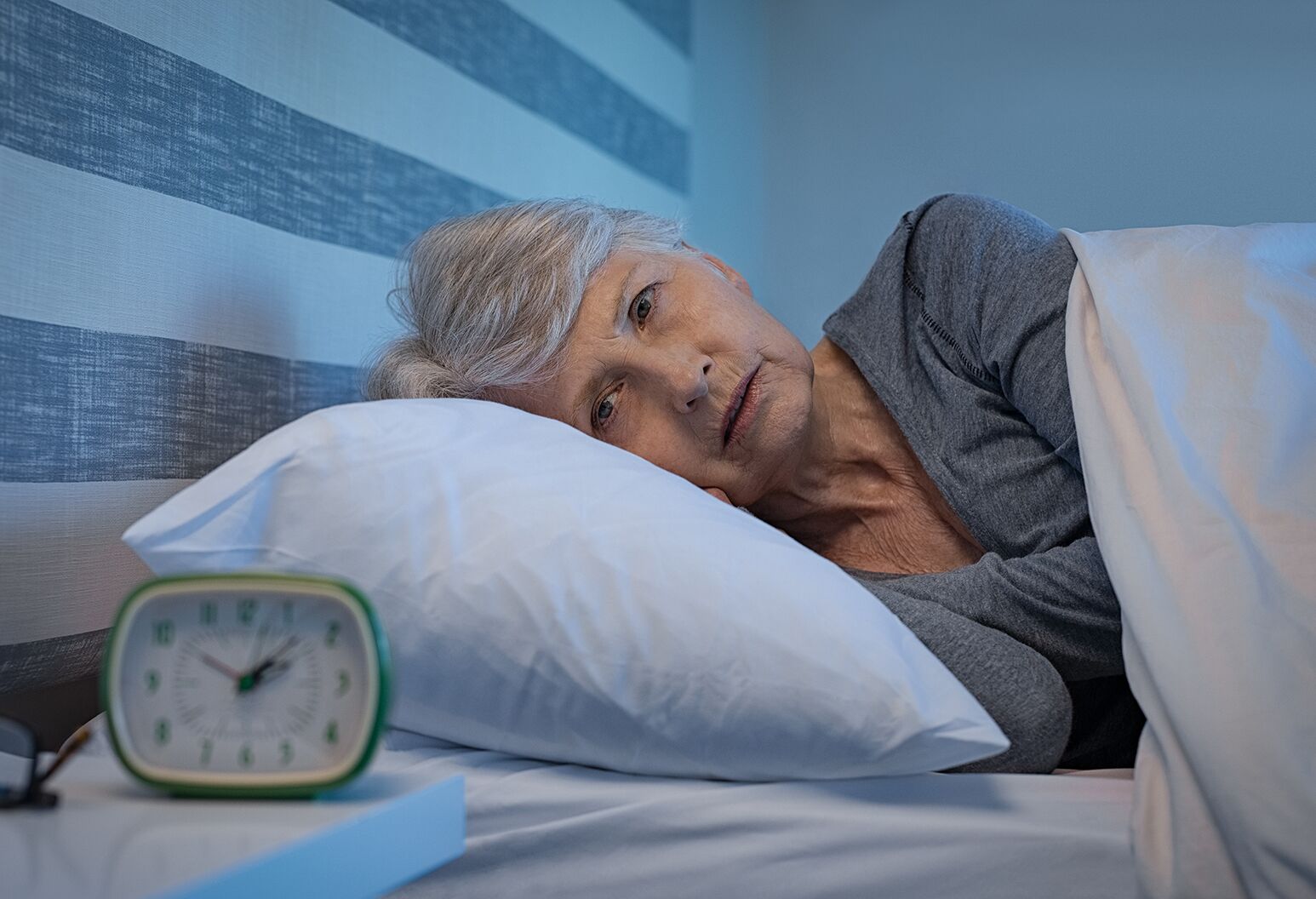sleep
How Sugar Cravings Lead To Poor Sleep

A sleep medicine specialist explains how to balance your caffeine intake with your sleep schedule.
3 min read
The next time you find yourself tossing and turning late into the night, think about what you had to drink that day. While that 3pm coffee (or energy drink) might give you a boost to power through the afternoon, you can pay the price for it that night.
Caffeine is sneaky—it blocks adenosine, a chemical in your brain that naturally makes you feel sleepy. And it has a half-life of about five to six hours, which means that half of the caffeine you consumed in the afternoon could still be in your system by bedtime, making it not only harder to fall asleep, but also disrupting the sleep you do get.
In my field, we care about your sleep efficiency, the measure of how much of your time in bed is spent actually sleeping. Ideally, you should be asleep for about 85% of the time you're in bed. If you're in bed for eight hours but you’re only asleep for six, your sleep efficiency is 75%, which is less than optimal.
Caffeine can reduce this efficiency by making it harder to fall asleep in the first place, and even once you're asleep, it may prevent you from getting deep, restorative rest. The result? You’ll likely feel groggy and drained the next morning.
The key to better sleep efficiency might just be your caffeine cutoff time. To improve sleep, aim to stop consuming caffeine by early afternoon. Even if you don’t feel wired after your last cup, it’s still working behind the scenes, affecting your brain’s ability to rest.
And it’s not just coffee you have to worry about. Caffeine can hide in other beverages like tea, soda, and energy drinks, as well as foods like chocolate. If sleep is a struggle, take note of all your caffeine sources and be mindful of when you consume them.
Don’t worry—it’s not as tough as it sounds. Start by gradually reducing your intake, cutting back one cup at a time. This allows your body to adjust without shocking your system. You might experience some withdrawal symptoms, like headaches or irritability, but these usually pass after a few days. And you don’t have to completely cut out caffeine, just consume less, and only early in the day.
Just because you cut back on caffeine doesn’t mean you have to drag yourself through the day feeling sluggish. Try these alternatives:
Herbal teas: Look for caffeine-free options like chamomile or peppermint, which can soothe your system without disrupting your sleep.
Exercise: If you need a pick-me-up in the afternoon, try a short walk or some light stretching—both can energize your body naturally.
Water: Staying hydrated can help prevent that mid-afternoon energy slump that often leads us to reach for coffee in the first place.
A balanced snack: A mid-afternoon bite that includes low-glycemic carbohydrates and lean protein will give you a natural energy boost, and keep you fueled to dinnertime.
While caffeine is a major factor in sleep disruption, it's important to consider your overall sleep hygiene. Factors like stress, irregular sleep schedules, and screen time before bed can also interfere with sleep efficiency. However, for many, addressing caffeine intake is a key first step toward more restorative sleep and more refreshed mornings.
The Well is Northwell Health’s commitment to the future of health care. In this time of information overabundance, much of which is inaccurate, unhelpful, or even difficult to understand, Northwell Health is on a mission to make a difference as an honest, trusted, and caring partner. The site connects with consumers to provide them with personalized content that reduces their stress, makes them laugh, and ultimately feel more confident and capable on their healthcare journey.